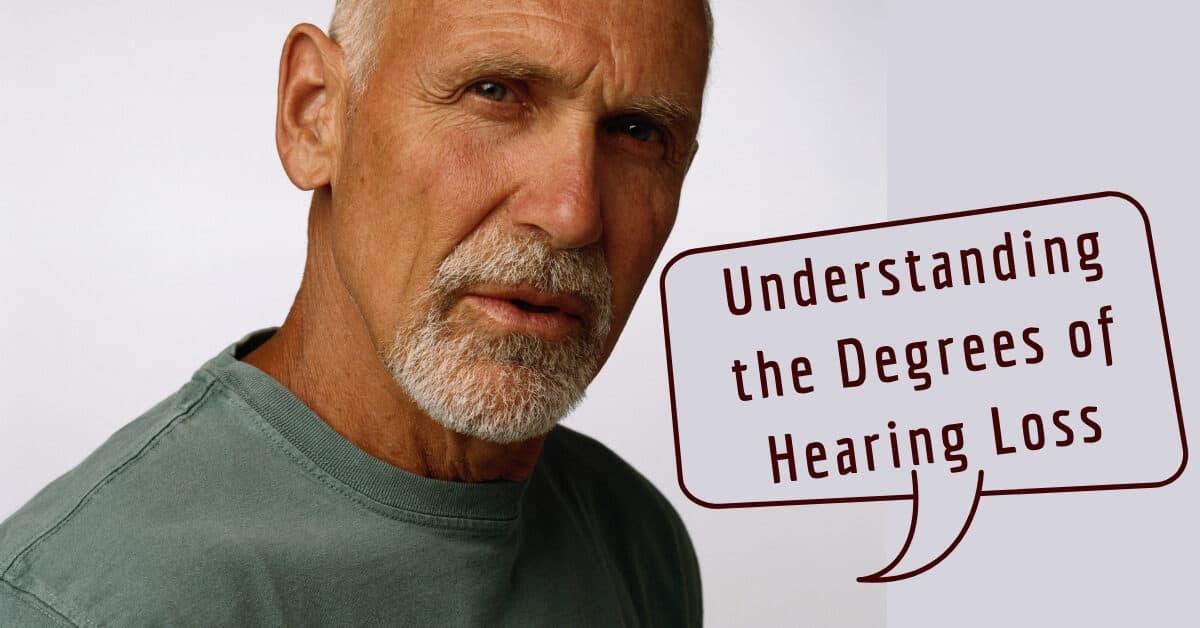
Have you noticed any changes in your hearing? If you’ve been struggling to hear some of the sounds in your environment, or have difficulty following conversations, you may be wondering about the degrees of hearing loss, and when you should get your hearing tested. There are four degrees of hearing loss, from mild hearing loss to profound hearing loss, and testing your hearing will help you determine the best treatment options for you, and what hearing aids will perfectly match your level of hearing loss.
Mild Hearing Loss
Mild hearing loss is the most common degree of hearing loss, and affects millions of Americans. If you have mild hearing loss, you probably won’t notice it all the time, so it’s often underdiagnosed and untreated. It will become more obvious when you’re trying to follow conversations in places with a lot of background noise, and you’ll have trouble hearing high pitched sounds, or miss out on soft sounds in your environment. You’ll have difficulty hearing noises softer than 40 decibels, including sounds like rustling leaves, or someone whispering.
Moderate Hearing Loss
Moderate hearing loss is a lot more obvious than mild hearing loss. Moderate hearing loss will make it hard to hear or have a conversation at normal volume. You’ll catch yourself straining to make sense of what’s been said, and ask people to repeat themselves often. Your hearing loss will start to interfere with your ability to get through each day, maintain your relationships, or be productive at the office. You’ll be unable to hear sounds around 60 decibels, like the hum of your appliances, or the volume of normal conversation.
Severe Hearing Loss
If you have severe hearing loss, you need hearing aids to get through the day. You will have difficulty hearing noises up to 80 decibels, like the alarm clock and traffic noise. Without your hearing device, you won’t be able to hear conversations. The sounds you will hear are very loud, like the vacuum cleaner, a hair drier, or very loud music.
Profound Hearing Loss
Profound hearing loss is the highest degree of hearing loss, and you will not be able to hear many of the sounds in your environment. Those with profound hearing loss are nearly deaf, and struggle to hear sounds over 80 decibels, like the lawnmower, heavy traffic noise, or even emergency sirens.
Knowing When to Treat Your Hearing Loss
Have you been struggling to hear? You may be wondering when you should treat your hearing loss. Many people wait far too long to get hearing aids, choosing to live with hearing loss, and straining to hear. Ask anyone with glasses how long they waited to treat their vision, and they’ll say they invested in corrective lens as soon as they noticed a problem. Treating hearing loss should be the same way. You’d never settle for blurry images, so don’t decide to live with muffled sounds.
In fact, waiting to treat your hearing loss could be costing you more than a few missed words or sentences. Hearing loss affects the brain, and when your ears aren’t able to hear certain sounds, the area in your brain that processes those sounds starts to deteriorate. When you finally decide to treat your hearing loss, your brain will no longer able to process the sounds. The earlier you get hearing aids, the more effective your treatment will be, and you’ll be doing the right thing for your ears and your brain
Hearing Devices
Today’s hearing devices are sleek and sophisticated, with incredible programs and settings inside tiny cases. From discreet behind the ear devices to hearing aids so small they sit inside your ear canal, we have the style that will work for you. We’ll recommend the device that will perfectly match your hearing needs, whether it’s at a meeting in the office, in the park with your grandchildren, out for dinner with friends, or in the quiet of your living room with your loved ones. We work with the worlds’ top hearing aid manufactures to bring you the best in hearing, and you’ll enjoy clear hearing, effortless communication, and improved quality of life.
